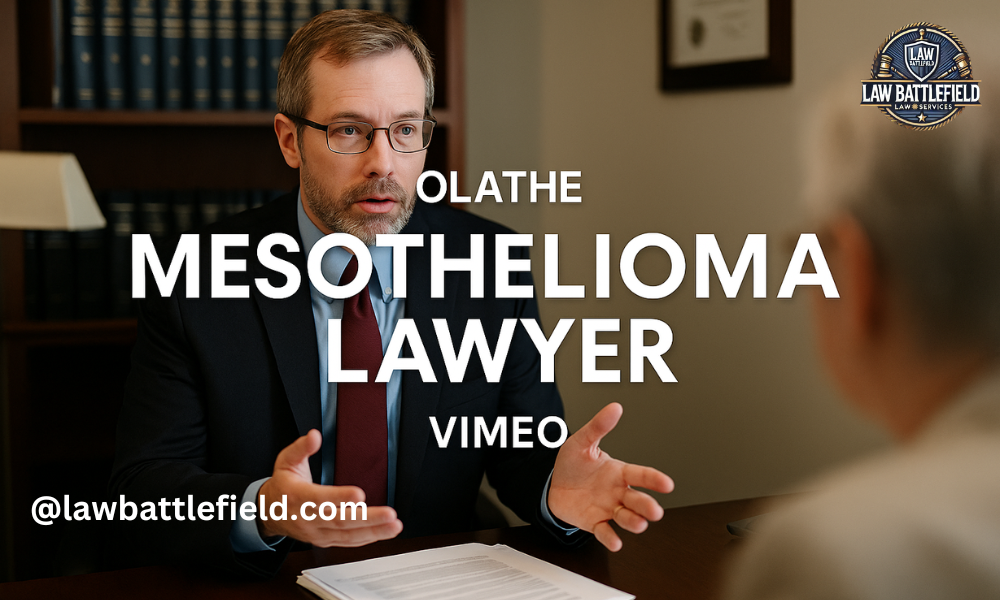Have you ever wondered what it takes to become a criminal lawyer? The path to defending clients and navigating the complexities of the legal system is both challenging and rewarding. Criminal law requires a strong understanding of legal principles, excellent communication skills, and a commitment to justice. For anyone considering this career, it’s important to know the responsibilities, skills, and realities involved.
In this blog, we will share essential insights that every aspiring criminal lawyer should know to help you prepare for a successful legal career.
1. Understanding The Role Of A Criminal Lawyer
Criminal lawyers represent clients who are accused of crimes. Their job is to defend their clients and ensure they receive a fair trial. This involves understanding legal procedures, collecting evidence, and presenting arguments in court. Criminal lawyers may also negotiate plea deals and work to reduce sentencing when possible.
Beyond courtroom appearances, criminal lawyers often spend time researching legal precedents, interviewing witnesses, and drafting legal documents. Their work is fast-paced and detail-oriented, requiring both legal expertise and the ability to think on their feet.
2. The Importance Of Education And Training
To become a criminal lawyer, you need a solid educational foundation. Most people start with a bachelor’s degree, followed by law school. It’s also helpful to focus on subjects like criminal law and procedure during your studies. A criminal justice online degree can provide additional knowledge about the legal system and criminal behavior, helping you gain specialized insights before law school.
After law school, aspiring lawyers must pass the bar exam to practice law in their state. But education doesn’t stop there. Many criminal lawyers continue learning throughout their careers by attending workshops and staying updated on changes in the law. Building your skills and knowledge is an ongoing process in this field.
3. Building Strong Communication Skills
Criminal lawyers need excellent communication skills to succeed. They must explain complex legal concepts to their clients, present convincing arguments in court, and negotiate effectively with opposing counsel. This requires both speaking and writing skills.
You should also learn to listen carefully. Understanding your client’s side of the story and picking up on key details during witness interviews can make a big difference in a case. Good communication helps you build trust with your clients and present a stronger case in court.
4. Developing Analytical And Problem-Solving Abilities
Criminal cases often involve complicated details and require creative solutions. A good lawyer needs to analyze evidence, spot inconsistencies in witness statements, and think critically about legal strategies. Every case is different, so problem-solving skills are essential.
You should also be prepared to make quick decisions. Whether you’re objecting to a line of questioning in court or deciding how to counter an argument, criminal lawyers need to act decisively under pressure. Analytical thinking helps you navigate these challenges effectively.
5. Gaining Real-World Experience
Experience is just as important as education in criminal law. Internships, clerkships, and volunteering at legal aid organizations are excellent ways to gain hands-on experience. These opportunities allow you to work alongside experienced lawyers, learn how the legal system operates, and build professional connections.
Working with real cases gives you a chance to apply what you’ve learned in school and gain confidence in your abilities. It also helps you understand the practical aspects of criminal law, from filing motions to interacting with clients.
6. Managing Stress And High Stakes
Criminal law can be emotionally and mentally challenging. You’ll often deal with high-stakes cases that affect people’s lives. Managing stress is crucial to staying focused and performing well under pressure.
Learning to separate your personal emotions from your work can help you handle tough cases. Finding healthy ways to relax and recharge, like exercising or spending time with loved ones, can also make a big difference. Staying balanced is key to thriving in a demanding career like criminal law.
7. Understanding Ethical Responsibilities
Criminal lawyers must adhere to strict ethical standards. Their role involves upholding the law while ensuring their client’s rights are protected. This means maintaining confidentiality, avoiding conflicts of interest, and providing honest advice to clients, even when the truth is hard to hear.
You also have a duty to the court and the justice system. Lawyers must present evidence truthfully, avoid misleading the court, and act in a manner that promotes fairness. Understanding and practicing these ethical responsibilities is crucial for building trust and credibility in your legal career.
8. Building A Professional Network
Networking is an important part of any legal career. Connecting with mentors, colleagues, and professionals in the legal community can open doors to new opportunities. Attend legal conferences, join local bar associations, and participate in networking events to expand your circle.
Your network can also provide valuable guidance and support as you navigate your career. Having experienced professionals to turn to for advice can help you handle challenges and make informed decisions about your future.
9. Staying Committed To Justice
At its core, criminal law is about ensuring justice is served. As a criminal lawyer, you have a responsibility to advocate for your clients and protect their rights. This often means standing up for people who may feel powerless or misunderstood.
It’s important to approach your work with integrity and empathy. Staying true to your values and treating every case with care will help you build a reputation as a trustworthy lawyer. Your commitment to justice can make a lasting impact on your clients and the legal system.
In conclusion, becoming a criminal lawyer is a challenging but rewarding journey. It requires education, experience, and a wide range of skills. From understanding legal procedures to managing stress and building professional relationships, there are many factors to consider when pursuing this career. As you take steps toward your goal, remember the importance of staying committed to your clients and the principles of justice. The path may not always be easy, but the opportunity to make a difference in people’s lives is well worth the effort.
Was this article helpful? Check out more on Lawbattlefield.com
Ed Vanatten Lawyer: Trusted Legal Expertise In Personal Injury, Criminal Defense, And Family Law





